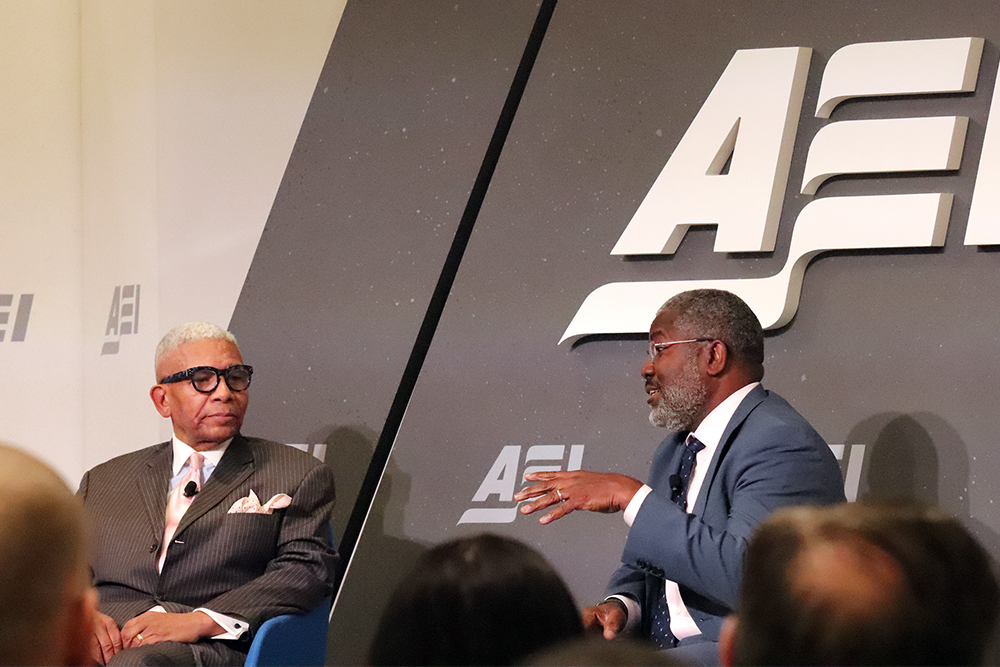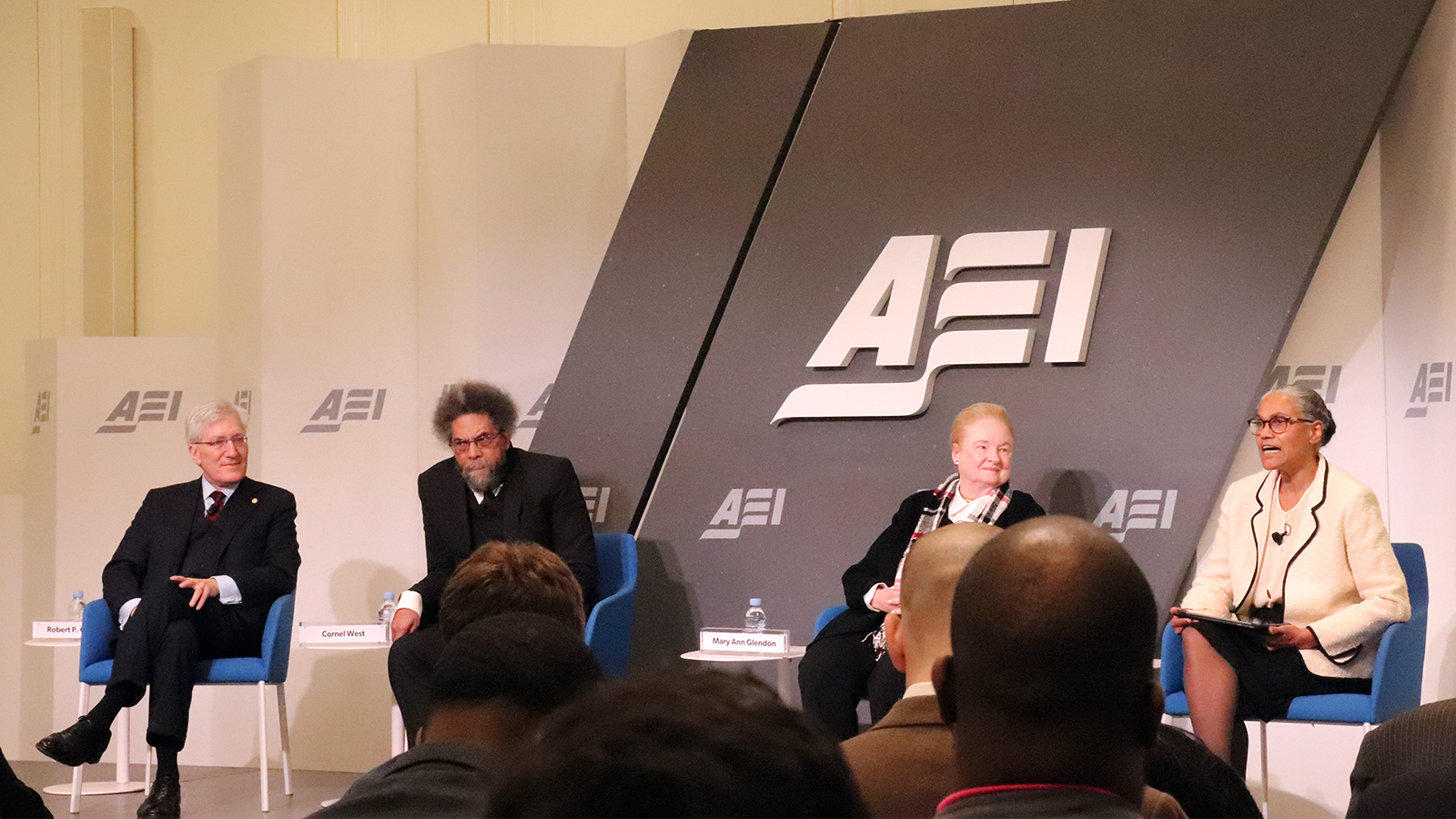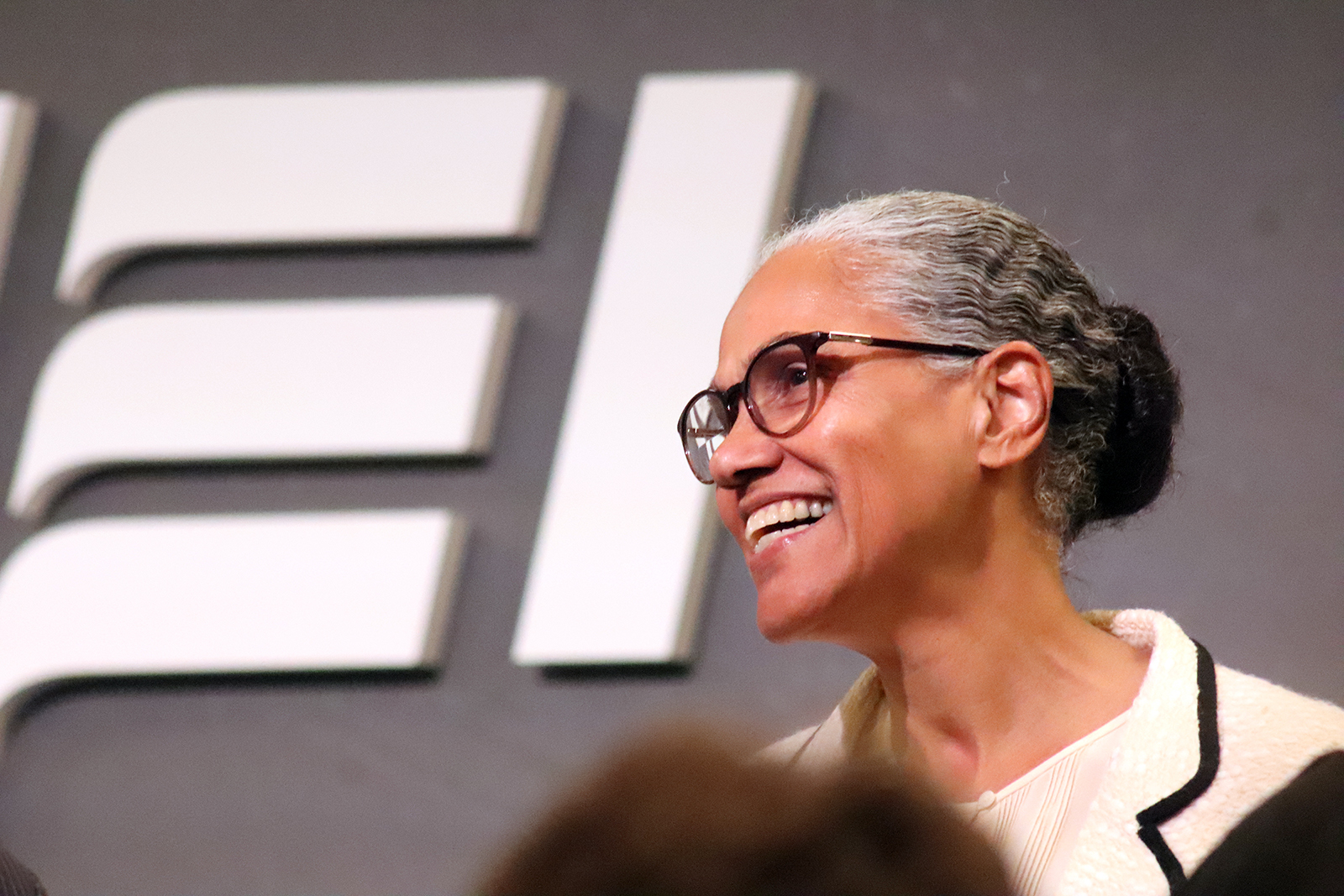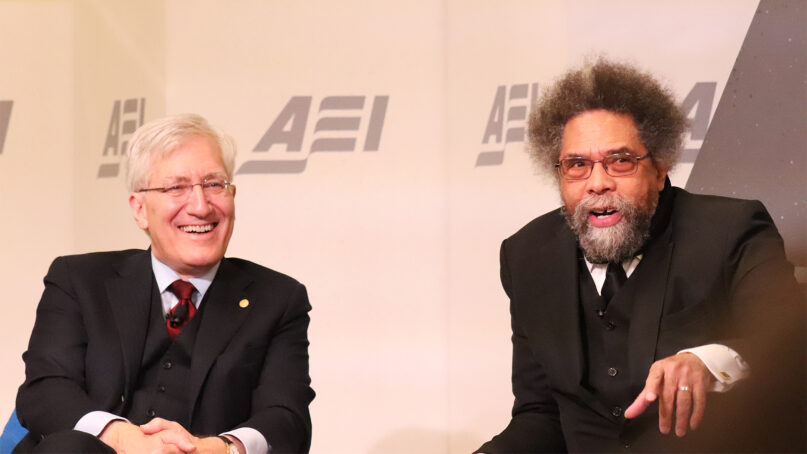WASHINGTON (RNS) — Two years to the day after the Jan. 6 attack on the Capitol, experts on religion and politics, including progressive activist Cornel West and Catholic conservative Robert P. George, mulled what should be done to shore up a democracy they agreed has been weakened.
“Today’s date should remind us of what happens when we ignore our country’s highest ideals and even now we struggle to come together as a nation and to rally behind our founding principles,” said American Enterprise Institute President Robert Doar, opening the Friday (Jan. 6) discussion attended by 120 people at his organization’s headquarters. “To overcome this challenge, we will need leadership and faith.”
The event highlighted the work of the Seymour Institute for Black Church and Policy Studies, which convened a diverse group of church leaders — representing the Church of God in Christ, the Assemblies of God and the Bruderhof Community — to pray together on the first anniversary of the attack.
A year later, the Rev. Eugene F. Rivers III, the institute’s founder and a COGIC leader, remained concerned that not enough church leaders have spoken up to criticize the actions on the day of the deadly insurrection.

The Rev. Eugene F. Rivers III, left, and Ian Rowe speak at the American Enterprise Institute on Friday, Jan. 6, 2023, in Washington. RNS photo by Adelle M. Banks
“We are in the middle of a spiritual crisis,” he told Ian Rowe, a senior fellow of the American Enterprise Institute. “This country desperately needs courageous spiritual leadership that will stand in the gap and speak to the existential crisis that confronts us.”
The gathering also featured Mary Ann Glendon, former U.S. ambassador to the Holy See, who joined George and West in a discussion moderated by Jacqueline C. Rivers, the Seymour Institute’s executive director, who described the event as an answer to the prayers of the previous year’s gathering.
RELATED: Faith leaders hold prayer vigils to mark second anniversary of Jan. 6 insurrection
Rivers said the discussion, titled “From January 6 to Ephesians 6: Strengthening the Pillars of American Democracy,” sought to seek common ground even as the biblical book of Ephesians describes battles against “spiritual forces that are at work in society.”
She noted that the event occurred at a moment when the House of Representatives still hadn’t determined its speaker for the new congressional session and recalled the infighting during the last session that prevented Democrats in leadership from achieving aspects of their agenda.
The experts at the event expressed their hopes for new role models who would lead the country forward with less focus on money and professional status and more on improving education, confronting racism and speaking up with courage.
Glendon, professor emerita of Harvard Law School, said post-Jan. 6 arguments about the state of American democracy need to include an examination of institutions that are preparing future leaders.
“One of the most important threats to our democratic experiment is one that doesn’t get mentioned in the debates following January 6,” she said, “and it is the erosion of the cultural and moral conditions that a democratic nation needs in order to survive and thrive.”

Robert P. George, from left, Cornel West, Mary Ann Glendon and moderator Jacqueline C. Rivers at the American Enterprise Institute on Friday, Jan. 6, 2023, in Washington. RNS photo by Adelle M. Banks
Glendon noted her surprise at research that shows the U.S. “leads by a considerable margin” a global list of countries with high rates of children being raised in single-parent households and data that shows the country also has comparably lower math and reading scores among developed countries.
George, citing Founding Father James Madison, said civic value — when people understand and live by the Constitution — is even more critical than the checks and balances between the U.S. legislative, executive and judicial branches.
“And here we have a real problem because across the political spectrum, across the ideological spectrum, conservatives and liberals and everybody else seem not to want to live by the constraints on constitutional power,” said George, a Princeton professor of jurisprudence. “They don’t want to exercise that civic virtue when it gets in the way of getting what they want.”
West, Union Theological Seminary professor of philosophy and Christian practice, said “love warriors” such as Frederick Douglass, Ida B. Wells-Barnett and Martin Luther King Jr. put civic virtue into action, persevering with nonviolence while withstanding a history of hate against African Americans.
“In the face of all of the terror and the lynching, we choose not to be a Black version of the Ku Klux Klan because if Black people had chosen to be a Black version of the Ku Klux Klan, there would have been a January 6 every 3 or 4 years,” West said.
He credited Black churches, families and mosques and artists like Louis Armstrong, Duke Ellington and Aretha Franklin for choosing to seek freedom for all.
“In the face of all of this trauma, we choose not to be wounded hurters but wounded healers,” West said.

Jacqueline C. Rivers moderated “From January 6 to Ephesians 6: Strengthening the Pillars of American Democracy” at the American Enterprise Institute on Friday, Jan. 6, 2023, in Washington. RNS photo by Adelle M. Banks
Though civic virtue has been shown through many traditions including Jewish people and leaders like Rabbi Abraham Joshua Heschel, he said, young people aren’t seeing exemplars of statesmanship and honesty.
“Right now, we’re living in a moment of overwhelming spiritual decay — it’s just clear,” he said, decrying a “callousness toward the weak,” whether they are “unborn babies if you believe they are human beings,” or residents of barrios and ghettos or members of the working class.
“And somewhere I read ‘he or she (who) will be greatest among you will be your servant, not successful in the world,’” he said, referring to the Gospel of Matthew.
George, who also is a former chair of the U.S. Commission on International Religious Freedom, added that people who are part of a particular group or party should be willing to speak out when someone within it is going down a path that lacks integrity.
“People need to see that there’s somebody in the tribe, in the party, in the group that says ‘Nope, I’m not going along with that. I’m drawing the line here,’” he said. “We see so little of it.”
In an interview after the event, Eugene Rivers said he hopes his institute will be able to hold seminars for white churches to address white supremacy and domestic terrorism, and he also believes there needs to be a convening of Black church leaders to determine next steps two years after the Jan. 6 attack on the Capitol. Eventually, he hopes there will be more interracial gatherings for the same purposes.
“It’s got to be a process and not an event,” he said.
RELATED: Talking MLK, Robert George and Cornel West offer antidote to partisanship





